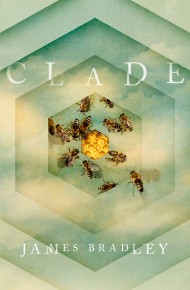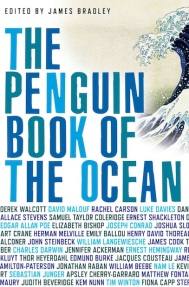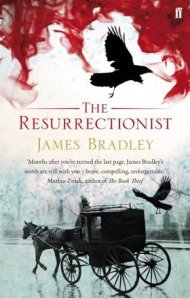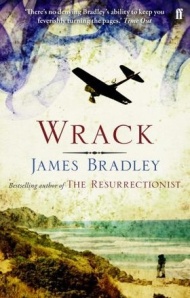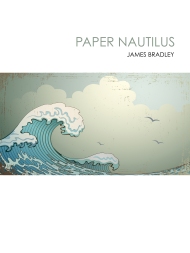One of the most interesting things about watching a novel go into the world is discovering what other people think it’s about. Sometimes that can be illuminating, sometimes it’s frustrating, but it’s always fascinating, not least because the book people seem to read is never quite the book you thought you were writing.
In Clade’s case this process was complicated by the fact a lot of people didn’t seem to know quite how to categorise it. For my part I tended to say it was science fiction, simply because that’s easy and relatively uncontroversial. A number of reviewers, especially in literary outlets, called it dystopian, which it isn’t, or not quite, while a couple of reviewers with an interest in science fiction described it a slow apocalypse or breakdown novel, which I suspect it is, at least in one sense. Others have called it cli fi, or climate fiction, a term that has some utility as a marketing category but seems to occlude more than it reveals when deployed as a critical tool; elsewhere some people have called it Anthropocene fiction.
Interestingly though, several reviewers registered the inadequacies of the terminology, and went on to ask about how exactly we should be describing the growing number of books engaged directly or indirectly with climate change and environmental transformation.
The most substantial of these discussions was in Niall Harrison’s characteristically thoughtful and perceptive review at Strange Horizons, a review that ended with what he described as “a coda about categories”. Noting first that Clade was only one of a number of recent novels “that to varying degrees explore the personal and social effects of environmental crisis”, he went on to note that while many such novels are “kinds of science fiction … there is a sound political logic for discussing them as a group unto themselves”.
Like others, Harrison thinks it’s possible to distinguish such novels from other kinds of science fiction because “climate change is already happening, which means it is in a different class of speculation and social relevance to, say, a pandemic: writing about it is a question of degree and perspective, not whether or not it will happen at all, and the degrees and perspectives that writers choose can be usefully compared” (a point Dan Bloom has also made). But he also – rightly – points out that acknowledging this distinction then demands we recognise the existence of novels such as Barbara Kingsolver’s Flight Behaviour, which are engaged with these questions but are not science fiction in any meaningful sense.
Like me Harrison is unconvinced of the utility of the notion of “cli fi” in this context (as I have also done he notes its troubling tendency to elide the long history of environmental science fiction), and similarly sceptical of trying to group such books together as dystopias or post-apocalyptic stories, even though many books in this area deploy tropes and strategies associated with these traditions, before acknowledging that while he doesn’t have a solution to the question he believes it deserves further attention, if only because “this is a vital literary area, and … we need to get better at describing and discussing it”.
For what it’s worth I agree with Harrison that this is an area in which our conventional terminology fails us, and that none of the options on offer seem to be able to make sense of the work that is being produced, its relationship to traditional genre categories like science fiction (and indeed non-fictional and essayistic forms such as nature writing), or the various strategies it deploys to open up the realist novel in ways that let it embrace and engage with environmental questions.
That’s partly because of the sheer diversity of such books, and their tendency to elide traditional genre boundaries: certainly there’s almost no meaningful family resemblance between a book like Kim Stanley Robinson’s Aurora and Sarah Hall’s The Wolf Border, but as I’ve argued elsewhere, the affinities between the two means they can (and should) be usefully discussed together.
At one level this diversity reflects the many and complex ways in which writers and artists are engaging with these questions, and more deeply their ongoing attempts to map out an imaginative language with which to make sense of what’s happening to our world (and indeed ourselves) in the 21st century, a point I’ve made elsewhere in the context of what might be best described as the new nature writing. Certainly it’s not accidental so many writers fall back on stories about lost parents and missing children when they seek to articulate their feelings about climate change, devices that capture something of the rupture and grief which suffuses the contemporary condition (something that has prompted the writer M. John Harrison to talk about “loss lit”, and which is also present in articles like this, or this). Nor is it a coincidence that so many of these books employ fractured structures, and borrow devices from science fiction and elsewhere to talk about time and deep time (I suspect all the lost parents and children are another way of getting at these questions as well), or that questions of landscape, and our solastalgic sense of loss about its erasure intrude over and over again (in an excellent piece earlier this year Robert MacFarlane made a similar point about the rise of the eerie in contemporary British culture).
More importantly though, this diversity suggests why thinking of these books in terms of genres or categories is to miss the wood for the trees. Because these books aren’t a genre, they’re expressions of the deeper and more pervasive transformation of the world and ourselves we have taken to calling the Anthropocene in exactly the same way novels like Mrs Dalloway and Ulysses reflected and embodied the transformative effects of modernity upon our culture and our selves. As Mckenzie Wark quipped on Facebook earlier this year, all fiction is anthropocene fiction, some of it just doesn’t realise it yet.
To my mind the benefits of thinking about the question in this way are considerable. Not only does it allow us to step away from fruitless arguments about generic definition, but it allows us to see climate change as simply one (if still a very considerable) part of a larger process of transformation, one that embraces, amongst other things, genetic engineering, virtuality, over-population, species loss, habitat destruction and the broader disruption of natural and social systems by environmental change and capitalism.
And, perhaps more deeply, it recognises that we inhabit a world in which we ourselves are being altered, not just by technology and social transformation, but by the shifting terms of our engagement with what we would once have called the natural world. If one wanted to define when this change became apparent perhaps you might point to the floods and fires that tore through Australia over the summer of 2010/11, or the devastation wrought by Hurricane Sandy in 2012, or the droughts in the Middle East in 2008, or any one of the flooding events or hurricanes or droughts or heatwaves that have struck countries around the world in recent years, but perhaps the really significant moment was earlier this year, when average CO2 levels in the Earth’s atmosphere passed 400ppm for the first time since the Pliocene. As Virginia Woolf might have put it, on or about March 2015, human character changed.
What we call the literary expressions of this condition is an open question. The obvious choice is Anthropocene fiction, although I’m resistant to that term, both because like cli fi it suggests a set of generic boundaries, instead of emphasising the degree to which this transformation leaches into everything, and because it emphasises human agency when, to my mind at least, what many of the books and stories we wish to discuss are attempting to find ways to talk about the non-human in fictional terms (I also think it’s worth making the point that while the idea of the Anthropocene is usually assumed to embrace the effect upon the natural world by human activity, but it also – and importantly – embraces a different and more interstitial kind of ecological awareness, one that recognises the presence of wildness and the natural world within the fabric of the human world).
Yet still, given that this idea of the transformation of the natural world, and of the end of a particular idea of nature is central, I wonder whether it mightn’t be simplest to begin to speak of the post-natural, or post-naturalism, and to begin to think of it not as a fad or a fashion or a genre, but as a tangible condition, something shaped and defined by the transformation of the natural world by human agency that is going on around us, and which helps determine the nature of the way we see the world, the questions we ask, and perhaps most importantly, the stories we tell.





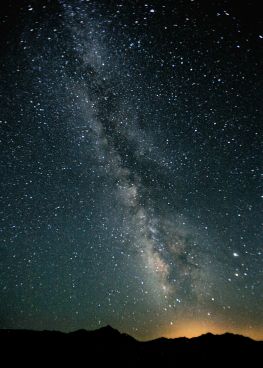 I’m thrilled to be able to announce that Clade has been shortlisted for the 2016 Western Australian Premier’s Award for Fiction, alongside books by
I’m thrilled to be able to announce that Clade has been shortlisted for the 2016 Western Australian Premier’s Award for Fiction, alongside books by 
 I’m delighted to be able to announce that
I’m delighted to be able to announce that  I’m very excited to say the audio book edition of my Victorian Premier’s,
I’m very excited to say the audio book edition of my Victorian Premier’s, 
 This week saw the announcements of the
This week saw the announcements of the  Just a quick post to say how delighted I am to discover
Just a quick post to say how delighted I am to discover 

 Just a quick heads-up to say that if you’re in Melbourne I’ll be appearing at a special event at
Just a quick heads-up to say that if you’re in Melbourne I’ll be appearing at a special event at 


